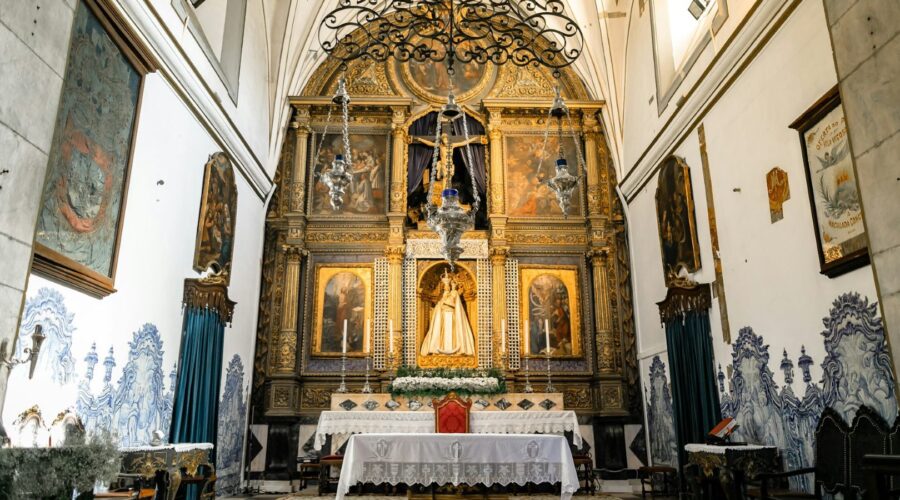Introduction
A diocese is an ecclesiastical jurisdiction within the Christian Church, typically headed by a bishop. The term “diocese” derives from the Greek word dioikesis, meaning “administration.” Dioceses are responsible for providing pastoral care, administering the sacraments, and overseeing the spiritual well-being of the faithful within their boundaries.
Historical Development
The concept of dioceses emerged in the early centuries of Christianity as the Church expanded beyond its initial urban centers. In the 4th century, the Council of Nicea established a hierarchical structure within the Church, with bishops overseeing specific geographical regions. Over time, these regions became known as dioceses.
Bishops and Metropolitans
Bishops are the ordained leaders of dioceses. They are responsible for the pastoral care of their flock, ordaining new priests and deacons, and administering the sacraments. Bishops are often assisted by priests and deacons, who perform various liturgical and administrative tasks.
In some branches of Christianity, metropolitans or archbishops oversee multiple dioceses within a province or metropolitan see. Metropolitans have authority over the bishops within their province and serve as their ecclesiastical superiors.
Types of Dioceses
There are various types of dioceses within the Christian Church:
- Latin dioceses: Found in the Roman Catholic Church, Latin dioceses are territorial jurisdictions headed by bishops appointed by the Pope.
- Eastern dioceses: Found in the Eastern Orthodox, Oriental Orthodox, and Eastern Catholic Churches, Eastern dioceses often encompass a wider geographical area and are headed by bishops or patriarchs.
- Auxiliary dioceses: Established to assist in the pastoral care of large dioceses, auxiliary dioceses are led by auxiliary bishops who are appointed by the diocesan bishop.
- Titular dioceses: These are dioceses that have historical or geographical significance but no longer have a resident bishop. They are often assigned to auxiliary bishops or retired bishops as their titular see.
Geographic Boundaries
Dioceses are typically defined by geographical boundaries that encompass a specific region or population. The boundaries of a diocese may change over time due to population shifts, growth, or religious conversions.
Parishes and Mission Stations
Within dioceses, parishes are local church communities led by priests or other clergy. Parishes provide pastoral care to the faithful and are usually located within a specific geographic area. Mission stations are often established in remote or underserved areas to provide access to religious services for those who live far from a parish.
Administration
Dioceses are administered by a variety of individuals and organizations, including:
Chancery Office
The chancery office serves as the administrative headquarters of a diocese. It is responsible for handling financial matters, legal issues, and communication with the faithful. The chancery is typically staffed by lay administrators and clergy.
Diocesan Synod
In some dioceses, a diocesan synod or council exists as a consultative body that assists the bishop in governance. The synod is composed of clergy, lay delegates, and other representatives who provide feedback and advice on matters affecting the diocese.
Finance Council
The finance council is responsible for managing the financial affairs of the diocese. It advises the bishop on financial matters, ensures the proper use of diocesan funds, and develops financial policies.
Mission and Ministry
The primary mission of dioceses is to provide pastoral care to the faithful within their boundaries. This involves a wide range of activities, such as:
Liturgical Services
Dioceses organize and facilitate liturgical services, including Mass, baptisms, confirmations, and other sacraments. These services serve as central acts of worship and community gatherings.
Education
Dioceses often establish schools, universities, and seminaries to provide religious education to the faithful. These institutions play a vital role in forming the future leaders of the Church.
Outreach and Social Services
Dioceses are involved in a variety of outreach and social service programs that serve the needs of the poor, sick, and marginalized. These programs may include soup kitchens, homeless shelters, and counseling services.
Conclusion
Dioceses are essential administrative units within the Christian Church, providing pastoral care, administering the sacraments, and overseeing the spiritual well-being of the faithful. Through their various ministries and organizations, dioceses play a crucial role in the life of the Church and the community.


Leave a Reply